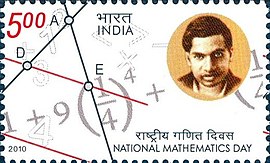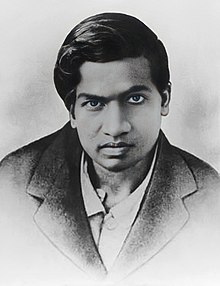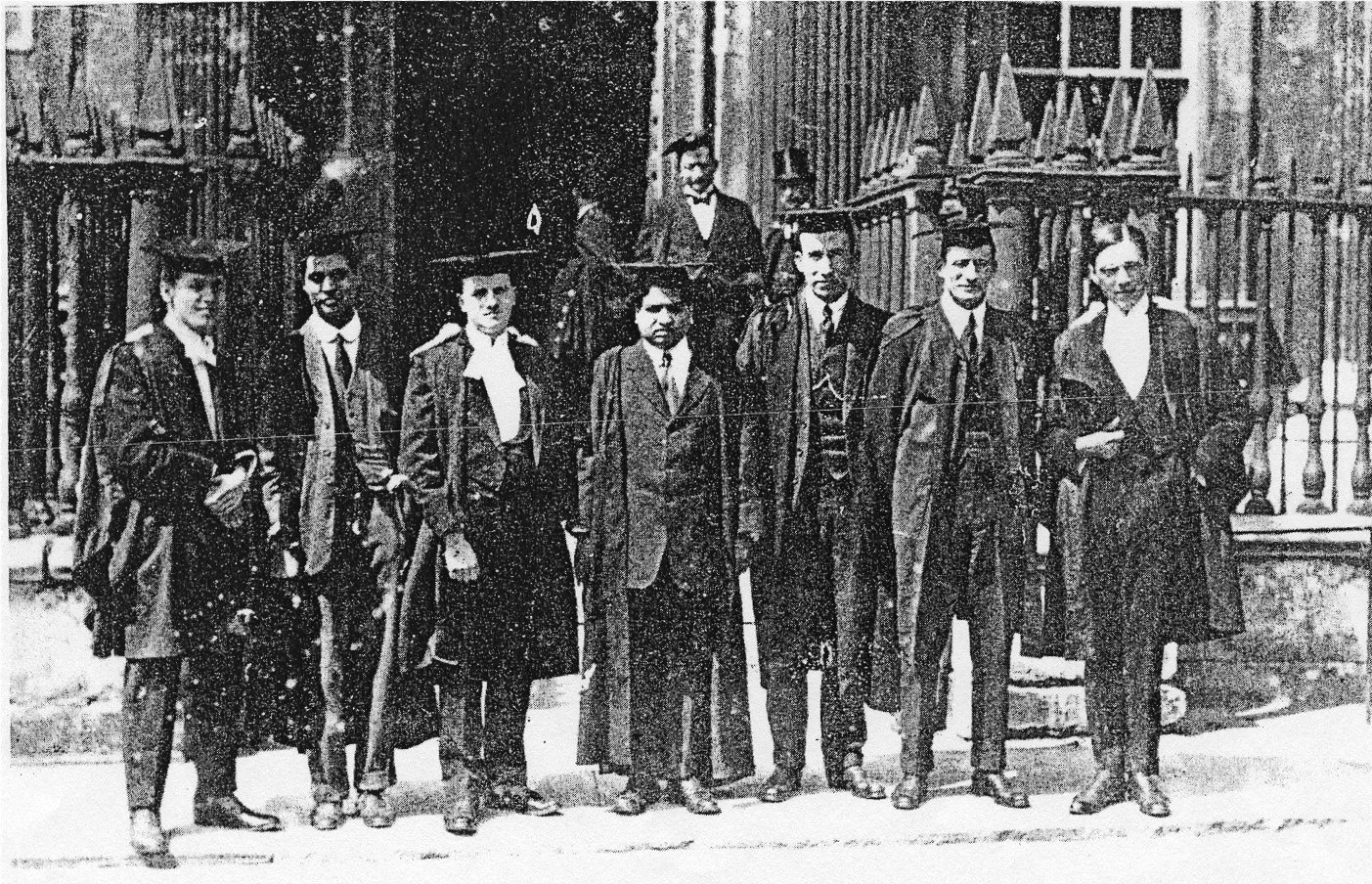Documentary Night: The Man Who Loved Numbers
Srinivas Ramanujan: His Life & Legacy
Srinivasa Ramanujan FRS 22 December 1887 – 26 April 1920) was an Indian mathematician. Though he had almost no formal training in pure mathematics, he made substantial contributions to mathematical analysis, number theory, infinite series, and continued fractions, including solutions to mathematical problems then considered unsolvable. Ramanujan initially developed his own mathematical research in isolation: according to Hans Eysenck: "He tried to interest the leading professional mathematicians in his work, but failed for the most part. What he had to show them was too novel, too unfamiliar, and additionally presented in unusual ways; they could not be bothered". Seeking mathematicians who could better understand his work, in 1913 he began a postal correspondence with the English mathematician G. H. Hardy at the University of Cambridge, England. Recognising Ramanujan's work as extraordinary, Hardy arranged for him to travel to Cambridge. In his notes, Hardy commented that Ramanujan had produced groundbreaking new theorems, including some that "defeated me completely; I had never seen anything in the least like them before", and some recently proven.
During his short life, Ramanujan independently compiled nearly 3,900 results (mostly identities and equations). Many were completely novel; his original and highly unconventional results, such as the Ramanujan prime, the Ramanujan theta function, partition formulae and mock theta functions, have opened entire new areas of work and inspired a vast amount of further research. Of his thousands of results, all but a dozen or two have now been proven correct. The Ramanujan Journal, a scientific journal, was established to publish work in all areas of mathematics influenced by Ramanujan, and his notebooks—containing summaries of his published and unpublished results—have been analysed and studied for decades since his death as a source of new mathematical ideas. As late as 2012, researchers continued to discover that mere comments in his writings about "simple properties" and "similar outputs" for certain findings were themselves profound and subtle number theory results that remained unsuspected until nearly a century after his death. He became one of the youngest Fellows of the Royal Society and only the second Indian member, and the first Indian to be elected a Fellow of Trinity College, Cambridge. Of his original letters, Hardy stated that a single look was enough to show they could have been written only by a mathematician of the highest calibre, comparing Ramanujan to mathematical geniuses such as Euler and Jacobi.
In 1919, ill health compelled Ramanujan's return to India, where he died in 1920 at the age of 32. His last letters to Hardy, written in January 1920, show that he was still continuing to produce new mathematical ideas and theorems. His "lost notebook", containing discoveries from the last year of his life, caused great excitement among mathematicians when it was rediscovered in 1976.
A deeply religious Hindu,Ramanujan credited his substantial mathematical capacities to divinity, and said his family goddess, Namagiri Thayar, revealed his mathematical knowledge to him. He once said, "An equation for me has no meaning unless it expresses a thought of God."
Date and Time
Location
Hosts
Registration
-
 Add Event to Calendar
Add Event to Calendar
Loading virtual attendance info...
- Contact Event Hosts
-
Follow ups may be directed to Sharan Kalwani
Speakers
Srinivas Ramanujan: His Life & Legacy
Srinivasa Ramanujan FRS 22 December 1887 – 26 April 1920) was an Indian mathematician. Though he had almost no formal training in pure mathematics, he made substantial contributions to mathematical analysis, number theory, infinite series, and continued fractions, including solutions to mathematical problems then considered unsolvable.
Biography:
Srinivasa Ramanujan FRS 22 December 1887 – 26 April 1920) was an Indian mathematician.
In 1919, ill health compelled Ramanujan's return to India, where he died in 1920 at the age of 32. His last letters to Hardy, written in January 1920, show that he was still continuing to produce new mathematical ideas and theorems. His "lost notebook", containing discoveries from the last year of his life, caused great excitement among mathematicians when it was rediscovered in 1976.
A deeply religious Hindu,Ramanujan credited his substantial mathematical capacities to divinity, and said his family goddess, Namagiri Thayar, revealed his mathematical knowledge to him. He once said, "An equation for me has no meaning unless it expresses a thought of God."
Feel free to check out:
https://en.wikipedia.org/wiki/Srinivasa_Ramanujan
https://mathgenealogy.org/id.php?id=91561 - Mathematics Genealogy Project
https://scienceworld.wolfram.com/biography/Ramanujan.html - Weisstein, Eric Wolfgang (ed.). "Ramanujan, Srinivasa (1887–1920)". ScienceWorld.
https://www.usna.edu/Users/math/meh/ramanujan.html -
https://writings.stephenwolfram.com/2016/04/who-was-ramanujan/ - Stephen Wolfram's Page on Ramanujan
https://www.imsc.res.in/~rao/ramanujan/contentindex.html - Notebooks and Papers, Indian Mathematical Society
Discussion Moderator: Sharan Kalwani of IEEE Southeastern Michigan Section
Agenda
6:00 PM - Welcome and Introductions, Chapter business update; break
6:05 PM - Movie Start/Presentation
7:20 PM - Q & A; group Discussion
7:30 PM - Wrap Up
An IEEE Southeastern Michigan Section event. All are welcome. Consider becoming an IEEE member if such similar events are of professional/academic/consulting interest to you. If you like such documentaries - which explore the many STEM luminaries, do let the organizer know. If there are figures from science/engineering history that you would like to see, drop an email. --Sharan Kalwani


 Srinivasa Ramanujan FRS 22 December 1887 – 26 April 1920) was an Indian mathematician. Though he had almost no formal training in pure mathematics, he made substantial contributions to mathematical analysis, number theory, infinite series, and continued fractions, including solutions to mathematical problems then considered unsolvable. Ramanujan initially developed his own mathematical research in isolation: according to Hans Eysenck: "He tried to interest the leading professional mathematicians in his work, but failed for the most part. What he had to show them was too novel, too unfamiliar, and additionally presented in unusual ways; they could not be bothered". Seeking mathematicians who could better understand his work, in 1913 he began a postal correspondence with the English mathematician G. H. Hardy at the University of Cambridge, England. Recognising Ramanujan's work as extraordinary, Hardy arranged for him to travel to Cambridge. In his notes, Hardy commented that Ramanujan had produced groundbreaking new theorems, including some that "defeated me completely; I had never seen anything in the least like them before", and some recently proven.
Srinivasa Ramanujan FRS 22 December 1887 – 26 April 1920) was an Indian mathematician. Though he had almost no formal training in pure mathematics, he made substantial contributions to mathematical analysis, number theory, infinite series, and continued fractions, including solutions to mathematical problems then considered unsolvable. Ramanujan initially developed his own mathematical research in isolation: according to Hans Eysenck: "He tried to interest the leading professional mathematicians in his work, but failed for the most part. What he had to show them was too novel, too unfamiliar, and additionally presented in unusual ways; they could not be bothered". Seeking mathematicians who could better understand his work, in 1913 he began a postal correspondence with the English mathematician G. H. Hardy at the University of Cambridge, England. Recognising Ramanujan's work as extraordinary, Hardy arranged for him to travel to Cambridge. In his notes, Hardy commented that Ramanujan had produced groundbreaking new theorems, including some that "defeated me completely; I had never seen anything in the least like them before", and some recently proven.
